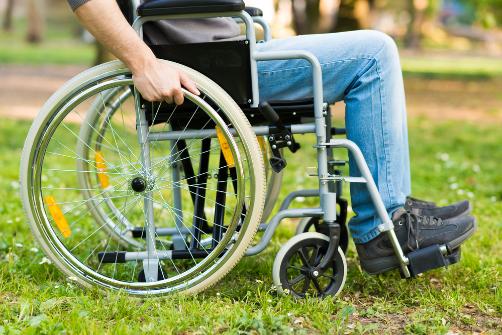If you think you may have MS, see a doctor who specializes in disorders of the brain and nervous system (neurologist). Make a list of symptoms and bring them to your appointment.
No one knows what causes MS, but it seems to be an autoimmune disease. Some genes increase your risk of developing it. Having a family member who has it may also raise your risk.
Symptoms
The early symptoms of MS include vision problems, tiredness, difficulty walking and keeping balance, muscle spasms (tremors) and weakness that affects one side of the face or body or is in your legs. You might also have problems with bowel and bladder control, or uncontrollable shaking, which is called twitching. The severity of these symptoms varies from person to person. They often come and go, but they can persist for a long time.
If you have the first of these symptoms, your doctor may want to run some tests to rule out conditions that are similar and could cause them. He or she might do blood tests to check for particular antibodies and an MRI to get a closer look at your brain and spinal cord. Your neurologist might also want to test your urine, sputum and stool for signs of inflammation. He or she will probably recommend that you stop smoking if you are, as this increases your risk of developing MS.
Symptoms depend on where the damage occurs in your brain and spinal cord. You might develop problems with your vision, such as double vision or blurring (optic neuritis). You might have muscle weakness that affects one side of the face, body or below the waist. You might have trouble thinking clearly or with memory and concentration. You might have problems with balance and slowed speech. Some people with MS have a condition called nystagmus, where their eyes move rhythmically back and forth or up and down without them trying to do so.
A common symptom is fatigue, which can range from mild to severe and can be triggered by many different things. Fatigue is especially common in women. It’s not unusual for young women to be told their fatigue is due to family and work responsibilities, which is why it’s important to pay attention to your health, advocate for yourself and ask questions if you feel frustrated or tired.
Another symptom is tremor, which can be caused by multiple sclerosis or by drugs you’re taking. Treatment might reduce or eliminate these tremors. Your neurologist might prescribe anti-seizure medications, pain relievers or steroids to help with tremors. A supplement called acetyl-L-carnitine might ease MS fatigue. Acupuncture and tai chi can also ease fatigue and tremors. Your OHSU team might also refer you to physical or occupational therapists who specialize in MS. These therapists can help you manage fatigue and address strength or balance issues.
Diagnosis
It isn’t easy to diagnose multiple sclerosis (MS). That’s because many health conditions can cause symptoms that seem like MS. The first step is to rule out other causes of your symptoms with a careful medical history, physical exam and tests such as an MRI and cerebrospinal fluid analysis. Your healthcare provider will look for a certain pattern of attacks and recovery over time (the McDonald Criteria) to confirm your diagnosis of relapsing remitting MS (RRMS).
You may also need other tests to check for changes or weakness in your brain, eyes, arms and legs. These include the evoked potential test, which records how your brain responds to visual, auditory and sensory stimuli. It shows whether nerve signals are getting slow or blocked. A neurologist will also do a magnetic resonance imaging (MRI) scan of your brain and spinal cord to look for areas of damage. You may also have other tests such as blood tests, a lumbar puncture and tests that measure nerve function.
In relapsing-remitting MS, your body attacks and damages the protective coverings (sheaths) that surround nerve fibers in your central nervous system. The damaged sheaths interrupt messages (signals) that your brain sends to different parts of your body to perform tasks such as vision, movement and sensation.
The cause of MS isn’t known, but it is thought that the immune system mistakenly attacks cells in your central nervous system. These cells are called myelin cells and they make up the sheaths that protect nerves in your brain, spinal cord and optic nerves. The damage to myelin sheaths stops them from sending clear and efficient signals, which can lead to symptoms such as numbness, tingling or pain and weakness in your arms and legs.
Other NIH Institutes also fund research on multiple sclerosis and related conditions. You can learn more about current and past NIH-funded research in this area through NIH RePORTER, a searchable database of publications. You can also find out about clinical trials that are looking for people who may benefit from MS-related treatment. NIH also supports research to develop new treatments that can prevent or delay the worsening of MS-related symptoms.
Treatment
There is no known cure for MS, but many treatments can improve how you feel and help manage your symptoms. Your doctor can prescribe drugs that may slow the course of your disease, prevent or treat attacks, ease your muscle spasms or treat some of the other symptoms, like fatigue and heat sensitivity. There are also medications, like steroids and antidepressants, that can ease pain.
There are around 20 disease-modifying therapies (DMTs) that have been licensed to treat relapsing forms of the condition. These work by changing how your immune system functions. They are most effective if started in the early stages of your illness. Your doctor will probably take a sample of the liquid that cushions your brain and spinal cord, called cerebrospinal fluid, to check for certain proteins that suggest you have the disease.
For relapses, your doctor will prescribe short-term steroid medications that can reduce inflammation and speed up your recovery from an attack. They may use injections, such as methylprednisolone, or give them to you intravenously, as a drip. These medications are usually only used 3 times a year to avoid long-term side effects, such as osteoporosis and weight gain.
Fatigue is a common symptom of MS, and it can be physical (tiredness in your arms or legs) or cognitive (slowed thinking or mental exhaustion). Lifestyle changes, such as better diet and exercise, can often help. Medicines, such as modafinil or methylphenidate, can also help. Some mind-body techniques, such as yoga, tai chi and meditation, can help reduce fatigue as well.
People with the relapsing-remitting form of the disease can sometimes have very severe symptoms, called a relapse. These can last from a few days to weeks or months and then slowly get better over time. Some relapses, however, can lead to significant disability or even death, particularly in those with the rare Marburg variant of the disease and Balo’s concentric sclerosis, which causes ring-like patterns of damage in the myelin sheath.
Other treatments that may help include physiotherapy, which can teach you ways to reduce your pain and stiffness and improve your mobility; heat or cold therapy to relieve muscle spasms or stiffness; and a dietary supplement called magnesium, which is thought to reduce the severity of relapses. Other methods of relaxation or stress management, such as support groups, hypnotherapy or individual psychotherapy, can also be helpful.
Prevention
There is no known way to prevent MS, which occurs when your immune system mistakenly attacks the protective sheath that covers your nerve fibers in the brain and spinal cord. This causes the nerve signals to slow down or stop altogether, and can lead to long-lasting disabilities. It is not yet known what causes the disease to develop in the first place, but experts believe it may be a combination of genetic and environmental factors.
Scientists do know that certain people are more likely to get the condition, including women, those with a family history of MS and those who are between the ages of 20 and 50. Other risk factors include having a virus such as Epstein-Barr, a lack of Vitamin D (because of low levels of sunlight) and smoking. Some autoimmune diseases and viral infections also increase your risk of getting the disorder, such as thyroid disease, pernicious anemia and psoriasis.
There are some things you can do to help reduce your chances of developing the disease. You can exercise, manage stress and eat a balanced diet, which will help your body fight off infection. You should also make sure to get regular medical examinations. Your GP can advise you on how often you should have an appointment, but usually every two to three years is recommended.
If you have any symptoms that might be a sign of the condition, go to your GP and let them know. They will be able to check if your symptoms are normal and not a result of another illness, such as the flu. If they are, they will refer you to a specialist in conditions that affect the nervous system (a neurologist).
Although it is not possible to avoid developing multiple sclerosis, you can reduce your risk by making healthy lifestyle choices. You should be sure to get enough vitamins, such as A and C, and minerals, such as calcium, magnesium and potassium. You should try to stay away from smoke and keep your weight under control. Taking anti-inflammatory medicines may also help.









